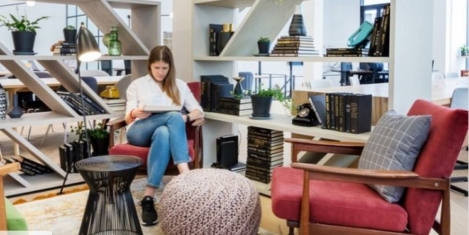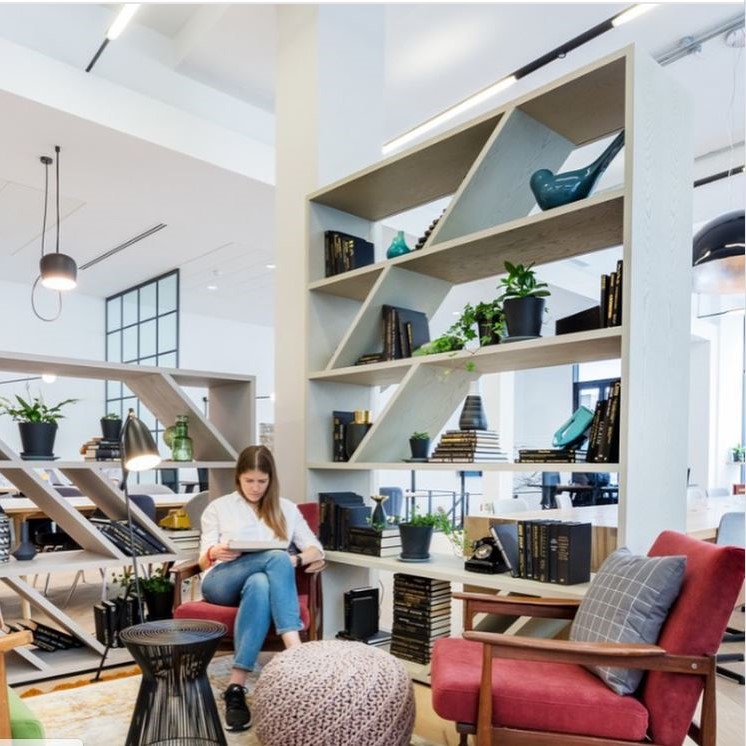To provide the best experiences, we use technologies like cookies to store and/or access device information. Consenting to these technologies will allow us to process data such as browsing behaviour or unique IDs on this site. Not consenting or withdrawing consent, may adversely affect certain features and functions.
The technical storage or access is strictly necessary for the legitimate purpose of enabling the use of a specific service explicitly requested by the subscriber or user, or for the sole purpose of carrying out the transmission of a communication over an electronic communications network.
The technical storage or access is necessary for the legitimate purpose of storing preferences that are not requested by the subscriber or user.
The technical storage or access that is used exclusively for statistical purposes.
The technical storage or access that is used exclusively for anonymous statistical purposes. Without a subpoena, voluntary compliance on the part of your Internet Service Provider, or additional records from a third party, information stored or retrieved for this purpose alone cannot usually be used to identify you.
The technical storage or access is required to create user profiles to send advertising, or to track the user on a website or across several websites for similar marketing purposes.
 Henley Business School’s World of Work Institute has published a new report on what it calls The Omniployment Era The report claims to identify which what a post-Covid, post-Great Resignation workforce looks like. The study identifies six distinct worker ‘segments’* in the UK workforce and quantifies what attracts and retains them in jobs, and provides advice to businesses on how to build a strong workforce. More →
Henley Business School’s World of Work Institute has published a new report on what it calls The Omniployment Era The report claims to identify which what a post-Covid, post-Great Resignation workforce looks like. The study identifies six distinct worker ‘segments’* in the UK workforce and quantifies what attracts and retains them in jobs, and provides advice to businesses on how to build a strong workforce. More →





 We know, and have for a long time, that the workplace is in a state of near constant flux. The meteor strike of lockdown was an accelerant, not a deviation. It also laid bare -yet again – the faulty assumption that there is some sort of general evolution towards an idealised version of the office or conversely the universal adoption of remote or hybrid working, whatever it is. That is why we see so many people routinely willing to suspend their critical facilities to make extravagant and even absurd predictions about the office of the future or even the death of the office.
We know, and have for a long time, that the workplace is in a state of near constant flux. The meteor strike of lockdown was an accelerant, not a deviation. It also laid bare -yet again – the faulty assumption that there is some sort of general evolution towards an idealised version of the office or conversely the universal adoption of remote or hybrid working, whatever it is. That is why we see so many people routinely willing to suspend their critical facilities to make extravagant and even absurd predictions about the office of the future or even the death of the office.








 You don’t have to look far to find misinformation. Just a few weeks ago, amid the aftermath of the coup in Niger, online platforms were being
You don’t have to look far to find misinformation. Just a few weeks ago, amid the aftermath of the coup in Niger, online platforms were being 
 With over a third (36 percent) of workers concerned about the impact of technological changes and what this might mean for them, a new report from Virgin Media O2 Business claims that many people believe new tech will offer them a better work-life balance. According to the report, the pandemic accelerated remote and hybrid work, mostly benefitting desk-based workers. Meanwhile, deskless workers like teachers, nurses and engineers saw limited long-term change despite many organisations comprising both types of workers.
With over a third (36 percent) of workers concerned about the impact of technological changes and what this might mean for them, a new report from Virgin Media O2 Business claims that many people believe new tech will offer them a better work-life balance. According to the report, the pandemic accelerated remote and hybrid work, mostly benefitting desk-based workers. Meanwhile, deskless workers like teachers, nurses and engineers saw limited long-term change despite many organisations comprising both types of workers. 















January 15, 2024
Forget all the talk of Blue Monday; work is still (largely) good for us
by Mark Eltringham • Comment, Facilities management, Wellbeing, Workplace